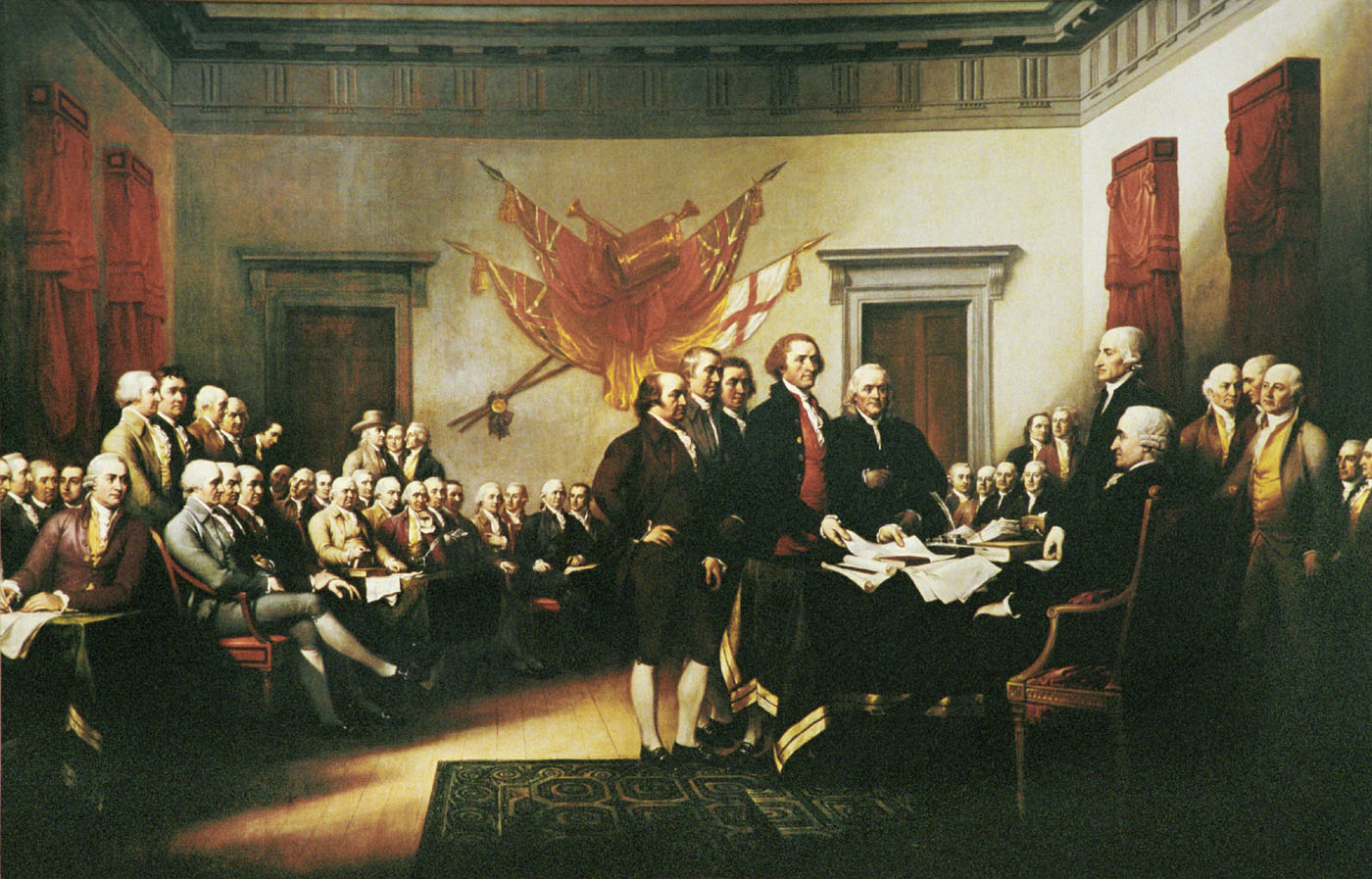As I began to look at the Constitution I realized that a large part of my political ideology stems from phrases found in the Declaration of Independence; and that document is no less important. So I begin there. . .
We hold these truths to be self-evident, that all men are created equal, that they are endowed by their Creator with certain unalienable Rights, that among these are Life, Liberty and the pursuit of Happiness.--That to secure these rights, Governments are instituted among Men. . .
"We hold these truths to be self-evident"
The stated truths that follow must be held as a given. . .
"That all men are created equal"
Slavery and other immoral growing pains that our nation has endured notwithstanding*, our government affirms this important truth: the equality of men. But what does this mean?
- It's an indisputable fact that not all men are born with the same opportunities. Scratch that. Not all men are born in the same environment, but this does not necessarily mean that not all men are born with the same opportunities. Hear me out on this one. We are all born in different circumstances, but this does not mean that our ability to find happiness differs with our variable circumstances. Cannot I find just as much happiness in my life as Bill Gates? And can't a person in the ghetto achieve a happiness as every bit as real as mine? Certainly there must needs be some minimum requirement met for this rule to hold true: adequate food, shelter, safety, and availability to healthy interaction with others.
- What's the government's role in those situations where men are clearly at a disadvantage through no fault of their own? I think this question comes later in our discussion. This equality phrase is simply a precursor to the rest of the sentence, which further clarifies in what way men are created equal.
Okay, at this point, I realized it was silly to take this sentence apart. It is better understand in whole, not parts.
All men are created equal in that they are endowed by their creator certain inalienable rights: life, liberty, and the pursuit of happiness. I am equal to the next man because, regardless of the circumstances in which we were born, we have been given life, liberty, and the pursuit of happiness from our Creator.
Two more ideas to wrap up this post:
All men are created equal in that they are endowed by their creator certain inalienable rights: life, liberty, and the pursuit of happiness. I am equal to the next man because, regardless of the circumstances in which we were born, we have been given life, liberty, and the pursuit of happiness from our Creator.
Two more ideas to wrap up this post:
- "endowed by their Creator" I believe in God. And I believe that it is only because of God that I have life, liberty, and the ability to choose what makes me happy. I am not sure if atheism impacts ones decision to embrace the political philosophy of our Founding Fathers; I imagine it varies from one atheist to another. I do know that my belief in God does impact my political ideology, as it will be apparent in these discussions. Furthermore, theists differ greatly in their individual beliefs.
The next sentence can sum up the big picture of the purpose of government:
"That to secure these rights, governments are instituted among men."
Governments have the grand purpose of securing life, liberty, and the pursuit of happiness. Governments do not grant these rights, they make sure that these God-given rights are protected. This is the first great litmus test for the scope of the government for me. If the government is spending money on something other than securing these three rights, it is a waste. That's a rather hyperbolic statement; but I do think it can serve as a general guideline, a good starting point. Google "government wasteful spending", narrow your search to "past month" and you will find countless articles, including this page on a Congressman's website. The federal government has become too big, and it has clearly overstepped its mandate.
I intended each of these posts to be short, succinct, and focused on a small part of the document at hand. I learned my lesson with this first post: easier said than done! Everything seems to connect to everything else. . . I choose to write in a manner that is more like stream-of-consciousness, allowing the reader to experience my backpedalling and changes in focus. It is a lot quicker than polishing the piece over and over (knowing I'll never be satisfied if I'm searching for the perfect post). Also, I admit that my views change even as I write; and it's a good exercise for me to write like this.
So, I welcome your opinions. What am I missing? Where do you agree? Disagree?
*The scope of this study does not include picking apart the inequality in the law during the time this document was written. Certainly, that inequality at the outset of the nation has had far reaching effects; and some may argue these effects are present today. I will write about the ideal of these documents, and we have always fallen short of that ideal.


No comments:
Post a Comment